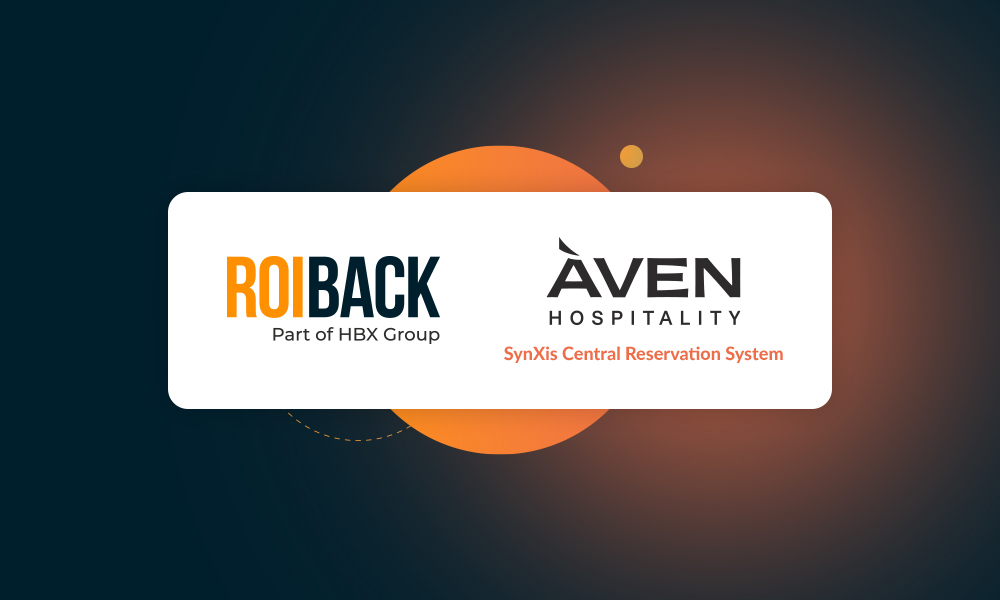Guide to optimizing resource consumption in your hotel
News
July 17, 2024

Content in collaboration with our partner Bioscore Sustainability, a sustainability consultant for tourism companies.
In today's hotel management, sustainability and efficiency in the use of resources have acquired crucial importance. Optimizing energy and water consumption, and proper waste management not only contribute to environmental protection, but also improve the profitability and image of the establishment. This article provides a practical guide for implementing effective strategies in these areas, highlighting the relevance of Bioscore Sustainability certification as a key tool for evaluating and communicating commitment to sustainability.
1. Energy Efficiency
a. Energy Audits
The first step to optimizing energy consumption in your hotel is to conduct an energy audit. This assessment will allow you to identify areas where energy is wasted and where improvements can be made. Energy audits provide a detailed analysis of energy consumption in lighting, heating, ventilation, air conditioning (HVAC), and other electrical systems.
b. LED Lighting
Replacing incandescent and fluorescent bulbs with LED lighting can significantly reduce energy consumption. LED bulbs are up to 80% more efficient and have a much longer lifespan, which also reduces maintenance and replacement costs.
c. Energy management systems
Implementing an energy management system (EMS) allows you to monitor and control energy use in real time. These systems can automatically adjust temperature and lighting according to occupancy and environmental conditions, ensuring efficient use of resources.
d. Renewable energies
Consider installing solar panels, wind power systems, or geothermal heat pumps. Although the initial investment may be high, the long-term return in terms of energy savings and environmental benefits is significant. In addition, these systems can improve the hotel's reputation by demonstrating a tangible commitment to sustainability.
2. Water Conservation
a. Calculation of the Water Footprint
Calculating the water footprint is essential to understanding and managing water consumption in your hotel. This metric evaluates the total water consumed directly and indirectly in all your accommodation's operations. Knowing the water footprint allows you to identify critical areas and develop specific strategies to reduce water consumption. It is one of the most demanded consulting services in recent years. We recommend that you be guided by Bioscore Sustainability.
b. Installation of low-consumption equipment
Installing low-flow faucets, showers, and toilets can significantly reduce water consumption. These devices are designed to maintain water pressure while using less water, resulting in significant savings.
c. Water reuse systems
Implementing water reuse systems, such as collecting and filtering gray water for use in irrigation or cisterns, can be an excellent way to conserve water. You can also consider installing rainwater harvesting systems for non-potable uses.
d. Preventive maintenance
Regular maintenance of hydraulic installations is crucial to prevent leaks and waste. Periodic inspections and timely replacement of defective components can prevent significant water losses.
3. Waste Management
a. Recycling programs
Implementing an effective recycling program is essential. Ensure that guests and staff have access to clearly marked recycling containers located at strategic points in the hotel. Offering training and awareness on the importance of recycling can increase participation and effectiveness of the program.
b. Reduction of plastics
Reducing the use of single-use plastics is a key objective. Opt for sustainable alternatives such as soap and shampoo dispensers instead of individual bottles, and encourage the use of reusable bags. You can also consider eliminating plastic products in food and beverage services, replacing them with compostable or recyclable options.
c. Organic waste management
Implementing a composting system for organic waste generated in the hotel's kitchens and restaurants can significantly reduce the amount of waste sent to landfills. The resulting compost can be used in the hotel gardens, closing the nutrient cycle in a sustainable way.
4. Sustainability Certification
a. What is Bioscore Sustainability?
Bioscore Sustainability is a hotel certification that provides a comprehensive assessment of the environmental and social performance of hotels. This certification not only helps hotels identify areas for improvement but also offers a platform to communicate their commitment to sustainability to guests and business partners.
b. Benefits of certification
Obtaining Bioscore Sustainability certification offers numerous benefits:
- Improved image and reputation: Current guests increasingly value sustainability and prefer to stay in hotels that demonstrate a clear commitment to the environment.
- Increased customer loyalty: Customers who value sustainability are more likely to return and recommend hotels that share their values.
- Competitive advantage: Certification can differentiate your hotel from the competition, attracting a broader and more conscious market of travelers.
- Cost savings: Implementing sustainable practices and optimizing resource consumption can significantly reduce operating costs.
- Real commitment: Demonstrates a tangible and verifiable commitment to sustainable practices, reinforcing the credibility and seriousness of your social, economic, and environmental efforts.
c. Certification process
The certification process with Bioscore Sustainability involves several stages:
- Initial assessment: An audit is conducted to evaluate the hotel's current performance in terms of sustainability.
- Improvement plan: Based on the audit results, an action plan is developed to address the identified areas for improvement.
- Implementation: The necessary actions are carried out to meet the established sustainability criteria.
- Review and certification: Once the improvements have been implemented, a final review is conducted to ensure that the Bioscore Sustainability standards are met, and certification is granted.
5. Involve Employees and Guests
a. Training and awareness
It is crucial that both staff and guests are aligned with the hotel's sustainability goals. Offering continuous training to employees on sustainable practices and their importance not only improves the implementation of these practices, but also motivates staff to participate actively in them.
b. Incentives and recognition
Implementing incentive and recognition programs for staff who participate in sustainable initiatives can encourage greater involvement. Guests can also be incentivized to participate in sustainability programs, such as the option to reuse towels and linens to reduce water and energy consumption.
Conclusion
Optimizing resource consumption in a hotel is an ongoing process that requires commitment and planning. Implementing energy efficiency measures, water conservation, waste management, and obtaining sustainability certifications such as Bioscore Sustainability not only contributes to the well-being of the environment, but also improves the hotel's operational efficiency and reputation. Involving employees and guests in these initiatives ensures a comprehensive and sustainable approach that will benefit everyone involved.
Read more

News
Roiback is once again a Google Premier Partner in 2026: what this means for your hotel and why it matters more than ever
By
Roiback

News
Waste in hospitality: from operational control to circular strategy
By
Roiback

News
Roiback obtains SynXis CRS integration certification to strengthen direct channel in large hotel organizations
By
Roiback




